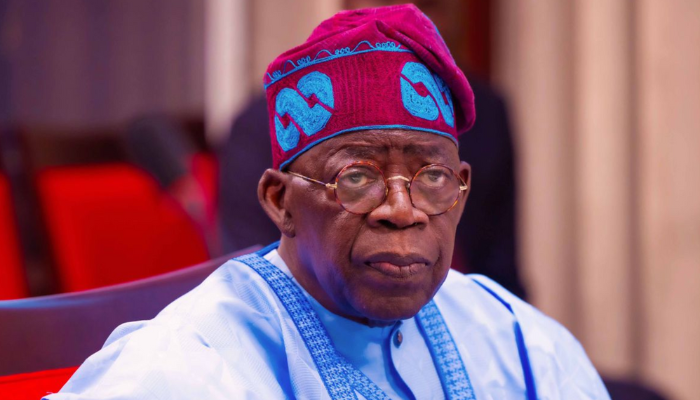President Bola Ahmed Tinubu has personally intervened to resolve lingering payment issues affecting projects funded by the Nigerian National Petroleum Company Ltd. (NNPCL). At a late July briefing, the president reassured contractors and stakeholders that all pending obligations would be cleared promptly.
The intervention comes amid growing concern over delays in payment for various downstream and upstream projects under NNPCL contracts. Contractors had reported stalled cash flows, leading to halted works and escalating cost claims. At least a dozen major firms—some involved in pipeline rehabilitation, facility upgrades, and fuel infrastructure development—had publicly raised alarms over payment arrears stretching back several months.

In his remarks, President Tinubu acknowledged the financial strains facing contractors and emphasized that ensuring continued delivery of petroleum infrastructure is crucial both for economic stability and national energy security. “Delays in project execution undermine our efforts to secure the fuel supply chain and erode investor confidence,” he stated. “It is unacceptable, and we will correct course.”
He explained that the delay partly stemmed from fiscal timing challenges within government budgeting—not intentional neglect. However, Tinubu affirmed that the administration is working with the Ministry of Finance and the Office of the Accountant‑General to prioritise release of funds. “All outstanding payments under NNPCL-funded contracts will be processed within the next 30 days,” he added.
Following the announcement, both NNPCL and the Ministry of Petroleum Resources confirmed that disbursement mechanisms are being unlocked. Federal accounts designated for project funding will be replenished, with direct transfers scheduled to eligible vendors and service providers. Preliminary lists of completed work awaiting payment have reportedly been prepared and verified by NNPCL’s finance team.
Industry analysts welcomed the development, noting that clearing outstanding debts could restore project momentum, reduce litigation risks, and stabilize market pricing. “Contractors facing long delays often inflate future bids to hedge risk,” observed one downstream sector analyst. “Tinubu’s assurance signals a return to fiscal discipline, which also improves predictability in the oil sector contracting environment.”
Economic experts also emphasised the broader implications. They noted that prompt payment helps maintain positive liquidity across the petroleum supply chain—from refiners and depots to logistics firms and transportation providers. Delays, they say, often cause ripple effects across fuel distribution networks, exacerbating supply disruptions and market price volatility.
In addition to scheduled payments, the president hinted at steps to improve future procurement practices within NNPCL. He directed that all new contracts be linked to more stringent performance and delivery timelines, with clear milestones tied to partial disbursements—a measure aimed at preventing similar project backlogs. He also called for increased transparency in invoicing and contract monitoring.
Civil society and industry groups have urged monitoring of the follow‑through. A coalition of oil and gas professionals has welcomed Tinubu’s pledge but called for independent oversight of disbursement to ensure funds reach the intended recipients. Ghana‑based energy firm leaders emphasised that sustained confidence hinges on visible, consistent execution—not just one‑off interventions.
Parliamentarians also reacted positively. A number of lawmakers had raised the issue of unpaid contractors during committee hearings, warning that late payments would stall critical infrastructure projects intended to boost fuel storage capacity, reduce import dependency, and improve price stability. Many hailed the president’s promise as a potential turning point.
Despite upbeat statements, some stakeholders maintain cautious optimism. One logistic services provider, echoing others, noted that payments must actually materialise before confidence can be fully restored. Several firms reportedly still await earmarked funding for completed services delivered earlier this year.
Still, hope is growing that the government will follow through. If payments are delivered as pledged, downstream operations—including pipeline rehabilitation, storage upgrades, and fuel terminal expansions—could resume with minimal delay. That restoration could in turn ease fuel scarcity, lower logistics premiums, and stabilize petrol distribution across Nigeria.
Speaking after the briefing, an NNPCL finance official confirmed that preliminary fund allocation is underway, with targeted direct bank transfers to eligible contractors imminent. The Ministry of Finance also released a statement indicating alignment with the president’s directive and confirmation of cash availability.
For now, vendors, contractors, and industry observers will watch closely. The pledged 30‑day window offers a short runway for NNPCL and federal agencies to resolve payment bottlenecks. If successful, it could pave the way for smoother execution of planned infrastructure projects—including pipeline upgrades and fuel depot modernization—vital for strengthening Nigeria’s energy ecosystem.
In closing, President Tinubu framed the intervention as part of his broader mandate to promote fiscal accountability and economic renewal. “Ensuring fuel supply is not just about crude production—it is also about honouring commitments and delivering infrastructure,” he said. “We are committed to getting this right.”
Support InfoStride News' Credible Journalism: Only credible journalism can guarantee a fair, accountable and transparent society, including democracy and government. It involves a lot of efforts and money. We need your support. Click here to Donate
